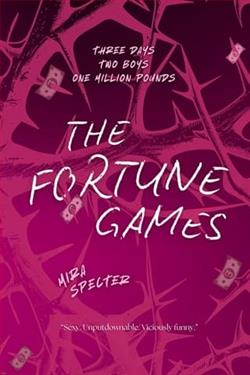Page 71 of The Silence Between
Leo met my eyes directly, vulnerability and determination equally visible. “Exactly what you're doing now. Help me navigate this system designed to presume the worst about family structures that don't fit traditional models.”
“I have a board committee meeting tomorrow,” I said. “Townsend will be there. I might be able to get some sense of what he's planning.”
Leo looked up sharply. “Be careful. He has significant influence in the district. I don't want your position compromised because of my situation.”
The warning carried genuine concern rather than dismissal. He actually cared what happened to me professionally.
“I can handle Townsend,” I assured him. “Literary analysis teaches you to read between lines without revealing your own narrative.”
A ghost of a smile touched his lips, brief glimpse of the wry humor I remembered from years ago. “Just... proceed with caution. This family's already cost you enough.”
“Some things are worth the cost,” I said simply.
* * *
The districtadministrative meeting provided perfect cover for strategic engagement with Townsend. The formal setting created natural context for conversation while the presence of other faculty and board members meant he had to be publicly polite regardless of private agendas.
I deliberately positioned myself near Townsend during the pre-meeting coffee service, calculating my approach. My status as published author and new faculty member created a natural opening. His evident appreciation for prestige made him receptive to conversation initiated by someone whose credentials he respected.
“Mr. Townsend? Ethan Webb. We haven't formally met, but I've heard a lot about your work with the school board.”
He turned with a practiced political smile. Mid-fifties, expensively dressed, with the particular confidence of someone accustomed to authority. “Mr. Webb. Our acclaimed literary addition to the faculty. I've heard excellent things about your classroom impact already.”
“Just trying to spark genuine engagement with literature,” I said modestly. “Though district policies certainly shape what's possible in the classroom.”
This opening allowed natural transition to educational philosophy discussion. My questions about his vision for Riverton schools created space for him to expound on priorities while I listened for specific concerns related to Leo's situation.
“Strong family involvement is essential to student success,” Townsend emphasized after outlining various initiatives. “We need to ensure children have proper guidance structures at home, traditional authority figures establishing appropriate values and boundaries.”
“I've certainly seen the impact of dedicated guardians on student performance,” I agreed carefully. “Some of my most engaged students come from families deeply committed to education, regardless of their specific structure.”
His expression tightened almost imperceptibly. “Structure matters, Mr. Webb. Children need proper parental authority, not alternative arrangements that lack fundamental guidance elements. Single parenthood is challenging enough, but sibling guardianship situations are particularly problematic.”
The specific reference confirmed this wasn't just general policy position but a targeted concern. His emphasis revealed ideological rather than student-centered motivation.
“I've found some non-traditional families achieve remarkable stability,” I offered, testing his reaction. “When guardians prioritize education and consistent structure, students often thrive regardless of family composition.”
“Temporary solutions sometimes become inappropriately permanent,” he countered, voice hardening slightly. “Children belong with parents whenever possible. The system should facilitate family reunification rather than perpetuating separation based on outdated assessments.”
The conversation continued with careful professional courtesy masking increasingly evident ideological positions. When Townsend mentioned “reviewing cases where siblings claim parental rights” with barely concealed disapproval, the targeted nature of his concern became unmistakable.
As our exchange concluded before the formal meeting began, he made a casual but pointed inquiry that confirmed my worst suspicions.
“You teach freshman English, correct? I believe you have Sophie Reyes in your class. Bright girl, from what I hear.” His studied casualness barely masked the fishing expedition. “Are you familiar with the broader Reyes situation? Quite an unusual custody arrangement.”
The question revealed both awareness of my potential connection beyond professional interaction and attempt to gather additional information through seemingly innocent conversation.
“Sophie is an excellent student,” I replied, matching his casual tone while carefully limiting information. “Her literary analysis shows remarkable depth for her age.”
“And her guardian? The older brother? Have you had much interaction with him?”
“Primarily through parent-teacher channels,” I said, the half-truth necessary to avoid revealing a connection that might further complicate Leo's situation. “He seems very engaged in her education.”
Townsend nodded, something calculating in his expression. “Interesting case. The custody review should provide valuable insight into how well that particular arrangement functions. Always good to ensure children have proper guidance, wouldn't you agree?”
The thinly veiled threat confirmed everything Leo feared. Targeted administrative action potentially threatening family stability maintained against tremendous odds for ten years. As Townsend moved away to greet other committee members, I remained momentarily frozen, protective instinct now fully engaged.
The emotions driving this response had evolved beyond abstract justice or professional concern. My determination to help protect Leo's family stemmed from something far more personal than our carefully negotiated collaboration acknowledged. Feelings I had yet to fully examine but could no longer pretend were simply collegial respect or historical connection.















